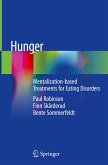Are you a picky eater? Do you worry that food will make you vomit or choke? Do you find eating to be a chore? If yes, this book is for you! Your struggles could be caused by Avoidant Restrictive Food Intake Disorder (ARFID); a disorder characterized by eating a limited variety or volume of food. You may have been told that you eat like a child, but ARFID affects people right across the lifespan, and this book is the first specifically written to support adults. Join Drs. Jennifer Thomas, Kendra Becker, and Kamryn Eddy - three ARFID experts at Harvard Medical School - to learn how to beat your ARFID at home and unlock a healthier relationship with food. Real-life examples show that you are not alone, while practical tips, quizzes, worksheets, and structured activities, take you step-by-step through the latest evidence-based treatment techniques to support your recovery.
'The authors have crafted a self-help book that empowers individuals with ARFID to coordinate their own treatment pathway. This is critical given limited access to expertise in the assessment and treatment of ARFID. The book provides guidance on engaging with medical providers regarding signs and symptoms of ARFID and potential evaluations that may uncover underlying nutritional deficiency. It also offers a framework for understanding ARFID alongside valuable tools to build and support a healthy diet. The authors recognize the variable presentations of ARFID in terms of restricted volume and/or variety, provide real world examples of treatment planning and implementation, and outline a roadmap for expanding dietary intake across food groups.' William Sharp, Ph.D., Director of the Children's Multidisciplinary Feeding Program, Children's Healthcare of Atlanta; Associate Professor, Division of Autism and Related Disorders and Division of Pediatric Gastroenterology, Hepatology, and Nutrition, Department of Pediatrics, Emory University School of Medicine








